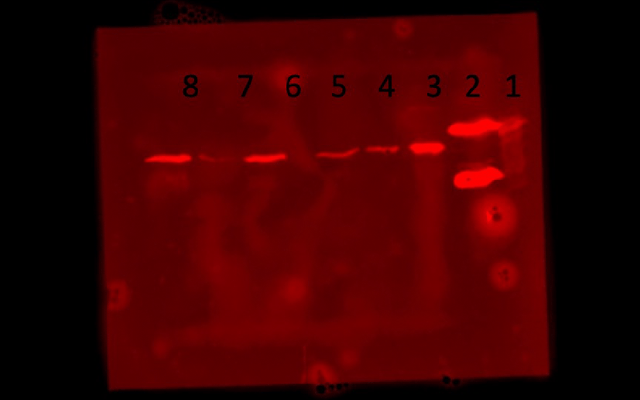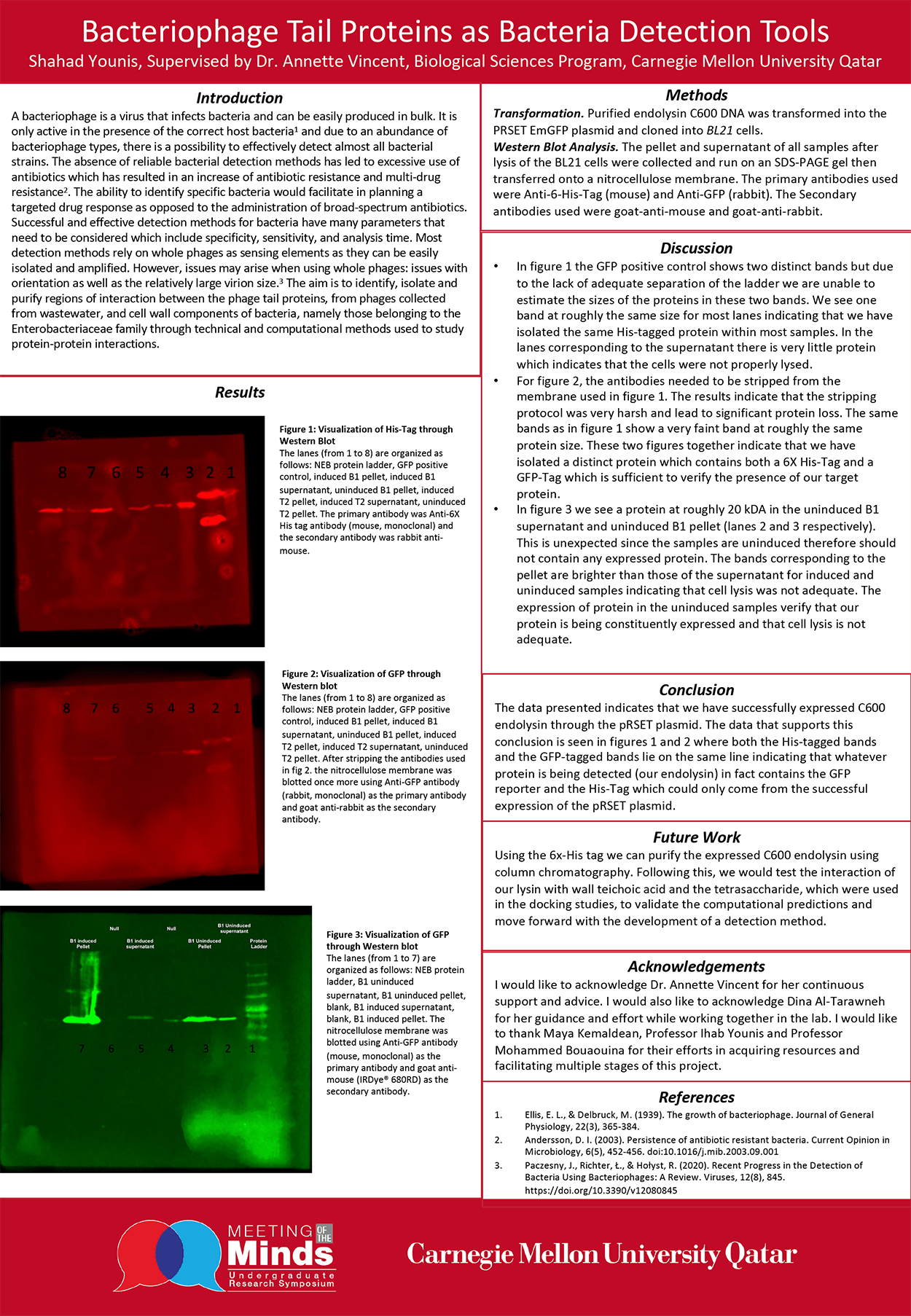A bacteriophage is a virus that infects bacteria and can be easily produced in bulk. It is only active in the presence of the correct host bacteria and due to an abundance of bacteriophage types, there is a possibility to effectively detect almost all bacterial strains. While the vast majority of detection methods rely on whole phages as sensing elements as they can be easily isolated and amplified, issues may arise when using whole phages such as issues with orientation and issues regarding the relatively large virion size. To solve these issues, it has been proposed that only certain parts of bacteriophages (such as the tail fiber protein) are used as biosensors rather than the whole virion. Therefore, my project aims to identify, isolate and purify regions of interaction between the phage tail proteins (from phages isolated from wastewater) and cell wall components of bacteria, namely those belonging to the Enterobacteriaceae family through technical and computational methods used to study protein-protein interactions. Candidate regions will be tagged with fluorescent probes and immobilized on paramagnetic beads, and host capture will occur through pull-down assays.



